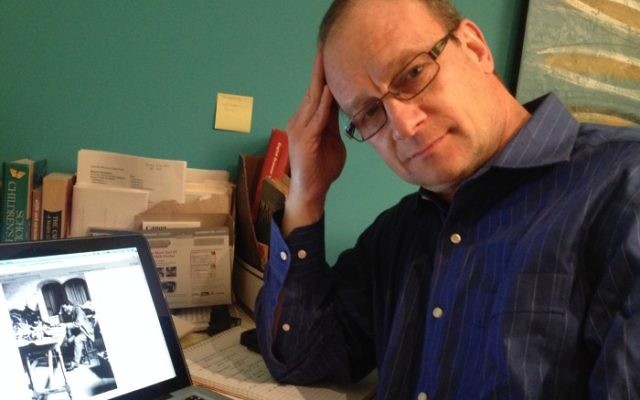2020’s Deserved Place in History
This year has felt longer than its 12 months. As 2020 ends, Dave is feeling worn out by the pandemic, protests, politics and personal concerns.
Dave Schechter is a veteran journalist whose career includes writing and producing reports from Israel and elsewhere in the Middle East.
Me, to 2020: “Don’t let the door hit you on the way out.”
I realize that writing those words with two weeks remaining in the year might be tempting fate. Who knows what this annus horribilis — Latin for “horrible year” — has left in store?
I have little doubt that 2020 will be among the years that stand out when future historians case the gaze back in time.
For example, 1918, when World War I ended as a global influenza pandemic killed tens of millions; 1929, when an overheated stock market crashed and the United States plunged into the Great Depression; and 1945, as World War II ended, first in Europe and then, with the introduction of a weapon employed twice and not since, in the Pacific.
In my lifetime, 1968 stands out. The Vietnam War raged. Martin Luther King Jr. was assassinated, sparking what were called “race riots,” and then Robert F. Kennedy was assassinated. Protests swept university campuses and police clashed with anti-war demonstrators in the streets of Chicago.
Of course 2001, notably for the 9/11 terrorist attacks that killed 2,977 people in New York, Washington, D.C., and near Shanksville, Pa., and the resulting security measures that have changed how Americans live.
Which brings us to the soon-to-be-departed 2020. The novel coronavirus COVID-19 has tested medicine and science and strained the health care system, though the year ends with hope placed in vaccines that may slow, if not arrest, its spread. The killings of African Americans sparked protests and ongoing, often-divisive conversations about race. Meanwhile, the election season will end soon (in Georgia, of all places). The Republic is still standing, but there is no vaccine for the damage done to the nation’s civic infrastructure.
Yes, your columnist is in a bit of a mood.
Just days before our departure, COVID-19 scotched the mid-March trip my wife and I had planned to Spain and France, to visit our youngest, who was studying in Strasbourg. As Europe shut down, we pulled our son out of France, putting him on a train to Germany, for flights from Frankfurt to Chicago, and then to Atlanta.
COVID concerns also prevented my 92-year-old mother and youngest sister from making a planned Passover visit. I talk to my mother almost every day and can see her on video calls but cannot visit her in Chicago. Likewise, my wife is unable to visit her father and mother in Texas, even as the latter’s faculties diminish.
Because I tick off a couple of COVID-19 risk boxes, all of my reporting since February has been done from my home office; hardly ideal, but necessary.
Which brings me to a particular segment of society. Generalizing slightly, these folks derided the virus as a hoax or behaved as if it impacted only the elderly or (and here they couch their language) people of color — like the fellow in Alpharetta who told a Washington Post reporter in May, “When you start seeing where the cases are coming from and the demographics – I’m not worried.” They eschew masks and pledge not to patronize businesses that require masks. (Lessons from the 1918 flu pandemic — see St. Louis vs. Philadelphia — escape them.) They find conspiracies around every corner and seemingly cannot understand that the response to COVID-19 has evolved as more has been learned about the virus. They go about their lives as if immune to the virus, but instead, appear immune to reason. All the while, more Americans are taking ill, hospital intensive care units again are filling, and people are dying. But it’s not their problem.
And then there are the stubborn of various political stripes. The most fervent adherents of the two major parties remind me of the joke about the Jew stranded on a desert island. When his rescuers ask why he built two synagogues, he replied, because this is the shul I attend and that’s the one I wouldn’t be caught dead in. That attitude is prevalent in our toxic public discourse: This is my tribe and those are the people I wouldn’t be caught dead talking to. Call it what you want — the divide, the gap, the gulf — but there is no chance of it narrowing until that nonsense stops.
Your columnist did not intend to end the year on a cranky note, but it’s been that kind of year. So, 2020, close the door quietly, but close the damn door.




comments